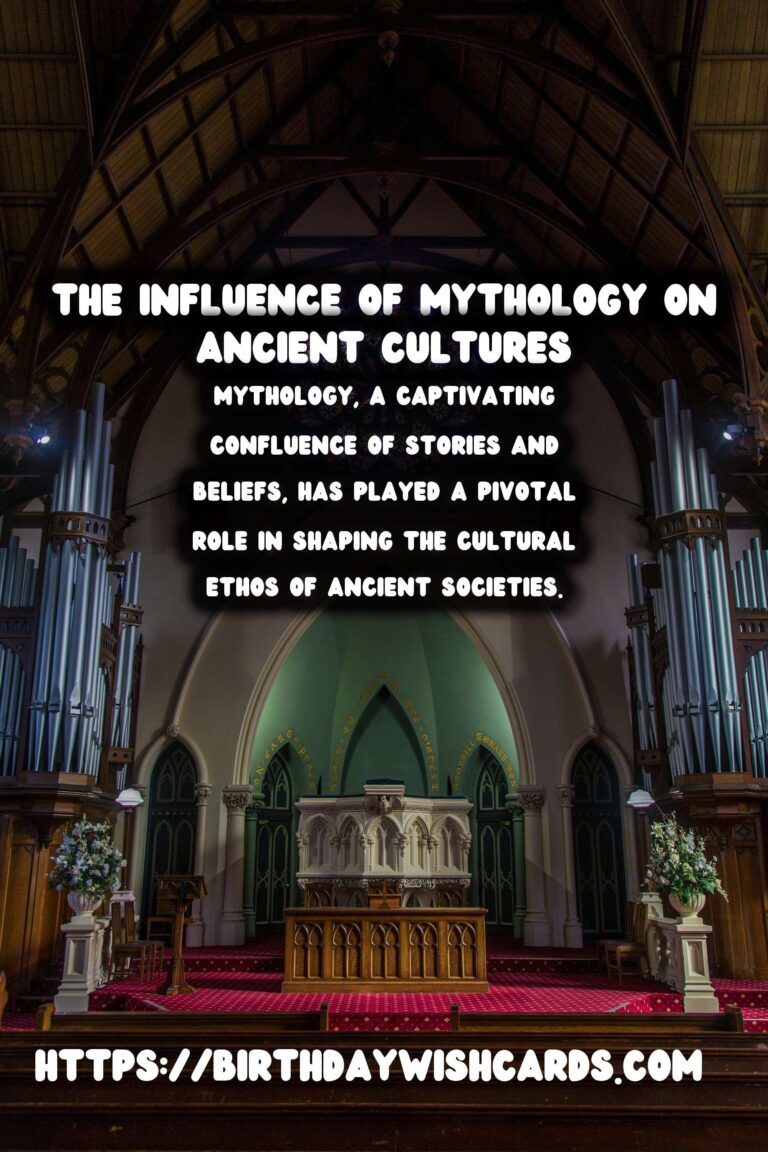
Mythology, a captivating confluence of stories and beliefs, has played a pivotal role in shaping the cultural ethos of ancient societies. These narratives, passed down through generations, served as both entertainment and education, anchoring societal values and worldviews. From the mystical realms of Egyptian deities to the epic tales of Greek heroes, mythology has left an indelible mark on human history.
The Origins of Mythology
Mythology began as an oral tradition, a repository of knowledge crucial for the survival and cohesion of communities. In ancient times, myths were an integral aspect of religion and provided explanations for the natural and supernatural world. These stories were deeply ingrained in the rituals and daily lives of the people, offering meaning and purpose.
The earliest mythologies, those of Sumerian and Egyptian descent, laid the foundations for later mythological traditions. These narratives captured the mysteries of existence, from creation myths to the afterlife, providing comfort and guidance to those who listened.
The Influence of Greek Mythology
Greek mythology, perhaps the most renowned, has exerted profound influence on Western culture. The tales of gods like Zeus and myths such as those of Hercules and Odysseus have permeated art, literature, and philosophy. The Greeks used myths to explore human nature, morality, and the complexities of the universe.
In Greek society, mythology offered a comprehensive framework for understanding the human condition. The gods exemplified both human virtues and flaws, providing a mirror for self-reflection. Furthermore, Greek myths facilitated a form of moral education, embedding societal norms and expectations within captivating stories.
Mythology’s Role in Roman Culture
The Romans, influenced heavily by Greek mythology due to cultural interchange, adapted these stories, adding their own nuances. Roman mythology intertwined with history and politics, reinforcing the empire’s authority and ideology. Myths like that of Romulus and Remus provided a divine origin for the Roman state, legitimizing its power and expansion.
Through extensive adoption of Greek deities, the Romans preserved these stories, ensuring their survival and continuation throughout the centuries. The narratives were intertwined with Roman festivals and state-sponsored spectacles, strengthening communal identity and cohesion.
Mythology in the East: The Indian Context
In the East, Indian mythology formed the bedrock of ancient cultural and spiritual life. Texts like the Mahabharata and Ramayana are not merely epic tales but also philosophical discourses on duty, righteousness, and the eternal struggle between good and evil. Indian mythology is profoundly linked with religious practice, being integral to the rituals and spiritual beliefs of Hinduism.
Functioning both as religious texts and mythological narratives, these epics convey lessons and values that are relevant even today. The myths serve as both allegorical and literal teachings, shaping the spiritual and ethical framework of society.
The Legacy of Mythology
The enduring power of mythology lies in its ability to speak to universal human experiences. Despite cultural and temporal differences, mythology has the unique ability to transcend boundaries, offering insights into the nature of humanity and the mysteries of our world. Its legacy is seen not only in ancient texts but also in modern storytelling, where archetypes and motifs from centuries past continue to resonate.
Modern media often draws on mythological themes, from novels and films to art and music, showing the lasting impact and relevance of these ancient narratives. Mythology, in many ways, remains alive, evolving and inspiring new generations to explore the deeper questions of existence.
Conclusion
The history of mythology is a testament to its persistent allure and influence. By examining mythology, we gain insights into the ancient cultures that shaped our world and the human desire to understand the profound mysteries of life. As these stories continue to be told and retold, they retain the power to enlighten, entertain, and evoke a sense of wonder.
Mythology, a captivating confluence of stories and beliefs, has played a pivotal role in shaping the cultural ethos of ancient societies. The Greeks used myths to explore human nature, morality, and the complexities of the universe.
#Mythology #AncientCultures

